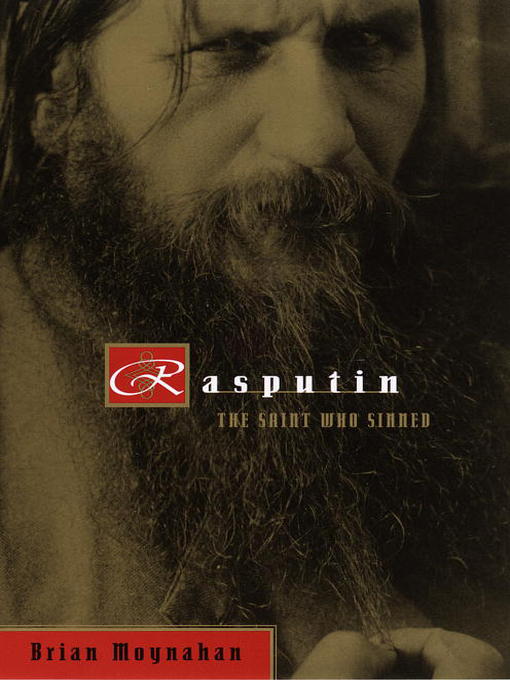
Rasputin
The Saint Who Sinned
کتاب های مرتبط
- اطلاعات
- نقد و بررسی
- دیدگاه کاربران
نقد و بررسی

September 1, 1997
Lecherous, filthy and ambitious, the Siberian-born Grigory Rasputin achieved influence as a starets--a Russian Orthodox mystic and guru. Moynahan (Claws of the Bear) writes with authority about one of the century's least attractive power brokers, a man who owed his opportunities to a genetic legacy of Queen Victoria, whose daughters carried the blood disease of hemophilia into the next generation. One of the queen's German granddaughters became empress of Russia, and Alexis, the youngest child and sole male heir of Tsar Nicholas II, was a bleeder. Moynahan shows how Rasputin's hold over the empress, who dominated her husband, was a seeming power to heal, temporarily, the frail czarevich. Rasputin's influence, which he peddled everywhere, further tarnished a monarchy already riddled by incompetence and corruption. In some ways Rasputin was saintly (he urged the czar to keep out of the 1914 war, turned bribe money over to the needy and ransomed the innocent as well as the guilty out of jai); he was also treacherous and profligate. Yet he would not have thrived without the devoted Alexandra, stresses Moynahan. Though aristocratic conspirators attempted to stop Russia's wartime hemorrhaging by murdering Rasputin in December 1916, their gesture was ultimately useless, for revolution was imminent. Moynahan's version of this oft-told tale is less spellbinding than sordid. Illustrations not seen by PW.

September 1, 1997
In this biography of the most notorious peasant in Russian history, Moynahan (The Russian Century, LJ 3/1/95) moves through the extraordinary and mostly familiar story--this is at least the 12th biography--of the events leading to the fall of tsardom itself. Moynahan's style is racy, with the frequent use of four-letter words, and no piece of gossip has been overlooked. He argues that the imperial couple's own personality defects, and not their son's illness, made them particularly vulnerable to exploitation: "Rasputin was an accident waiting to happen." Certainly the reader is left in no doubt that Nicholas II and his wife, she especially, were the main authors of their own and many others' misfortunes. While hardly "a precursor of the modern superstar," Rasputin remains a lurid symptom of tsarism's rot, but not the diabolical cause of its ruin. As Moynahan makes clear, he was a simple man, fallible, uneducated, intensely human, caught up in fantastic and, even now, hardly believable circumstances. This makes for good, even juicy reading; recommended for all libraries.--Robert H. Johnston, McMaster Univ., Hamilton, Ontario

September 15, 1997
Rasputin seems to be one of those historical figures we just can't get out of our systems, although his role in the fall of the Romanovs is probably inflated by many writers. Crude, profane, promiscuous, and often downright filthy, he managed to maintain the affections of Czarina Alexandra despite his scandalous reputation. Moynahan, a journalist who has written extensively on Russian history, views Rasputin as a generally sincere, genuinely religious peasant who lacked the will or even desire to resist his voracious appetites. Despite his access to previously suppressed Russian material, Moynahan doesn't provide any starling new revelations. He does, however, provide some interesting tidbits on the character and actions of the assassins and on the reactions of the government when their crime became evident. This is hardly a definitive, scholarly biography, but general readers can have a good time indulging themselves in the life of a man who rarely met an indulgence he didn't like. ((Reviewed September 15, 1997))(Reprinted with permission of Booklist, copyright 1997, American Library Association.)

























دیدگاه کاربران